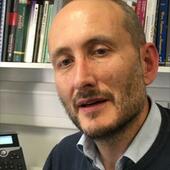
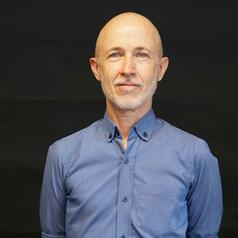
Pierre Waldemar Brouard
Acting director of the Centre for Sexualities, AIDS & Gender, University of Pretoria, University of Pretoria
Pierre is the acting director of the Centre for Sexualities, AIDS & Gender at the University of Pretoria, a registered clinical psychologist, and executive member of the Sexuality and Gender Division of the Psychological Society of South Africa. Pierre has worked in HIV since the mid 1980’s and at the CSA&G since 2001 as a manager, researcher, writer, facilitator and teacher. Interests include sexualities, gender, diversity, transformation and human rights.
Pierre is an external examiner for MA theses, a peer reviewer for a number of journals, sits on the board of the Human Rights Development Initiative, is a Board member of the Professional Association for Transgender Health South Africa (PATHSA) and has served on the Transformation Committee of the Faculty of Humanities.
Less ![]()
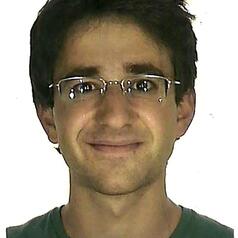
Pierre-Brice Bintein
Docteur en sciences physiques, Université Paris Cité
Domaines: physique aux interfaces, transitions de phase.
Less ![]()
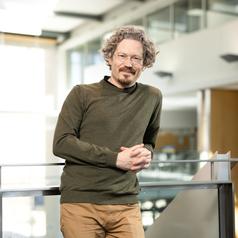
Pierre-Marie David
Professeur adjoint à la faculté de pharmacie, Université de Montréal
Pierre-Marie David est sociologue et pharmacien. Actuellement professeur adjoint à la faculté de pharmacie de l’Université de Montréal, ses recherches portent sur l’évaluation des pratiques et politiques reliées aux médicament à partir de grilles d’analyse basées sur l’équité et les relations de pouvoir. Il a travaillé sur les politiques pharmaceutiques pour la Croix rouge française en Afrique centrale et l’OMS en Asie du Sud-Est. Il a co-dirigé avec J. Collin l’ouvrage Vers une pharmaceuticalisation de la société?, paru aux Presses de l’Université du Québec et publié de nombreux articles scientifiques.
Less ![]()

Pierre-Philippe Fraiture
Professor of French Studies, University of Warwick
I teach postcolonial literatures and have published on the former Belgian Congo, the DRC and the Congolese philosopher VY Mudimbe. I am now exploring extractivism (and mining) in an African context and via figures such as Sammy Baloji, Fiston Mwanza Mujila and Sinzo Aanza.
Recent publications include:
Fraiture, Pierre-Philippe. (2024). Digging holes, excavating the present, mining the future: extractivism, time, and memory in Fiston Mwanza Mujila’s and Sammy Baloji’s works. Modern & Contemporary France, 32(1), 139–159. https://doi.org/10.1080/09639489.2023.2244906
Fraiture, Pierre-Philippe, Congolese Cultural Production in Africa and the World, French Studies, Volume 78, Issue 1, January 2024, Pages 101–127, https://doi.org/10.1093/fs/knad236
Fraiture, Pierre-Philippe, Langues congolaises et littérature africaine: entretien avec Richard Ali A Mutu, French Studies, Volume 78, Issue 1, January 2024, Pages 128–137, https://doi.org/10.1093/fs/knad235
Fraiture, Pierre-Philippe, Unfinished Histories: Empire and Postcolonial Resonance in Central Africa and Belgium, 2022, Leuven University Press, 426pp. https://library.oapen.org/handle/20.500.12657/59183
Less ![]()
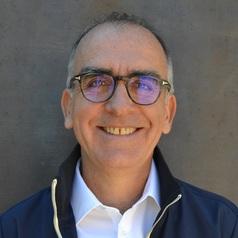
Pierre-Xavier Meschi
Professeur des Universités en sciences de gestion, Affillié à Skema Business School, IAE Aix-Marseille Graduate School of Management – Aix-Marseille Université
Pierre-Xavier Meschi (Ph.D in Management, IAE Aix-Marseille) is Professor of International Strategy at IAE Aix- Marseille (Aix-Marseille Université) and affiliated scholar at Skema Business School. He attended the ITP (International Teacher Program) at London Business School and the GloColl program at Harvard Business School. He is currently Vice-Dean of Research at IAE Aix-Marseille (Aix-Marseille Université).
His research interests include international joint ventures, international M&As, and emerging multinationals. He has previously published in academic journals such as Asia Pacific Journal of Management, Management International Review, International Business Review, European Management Review, Human Relations, Journal of World Business, Journal of International Management, Journal of Management, British Journal of Management, Advances in Strategic Management and Journal of International Business Studies.
Less ![]()

Pierrick Bruyas
PhD in Law, postdoctoral researcher (Univ. of Strasbourg), guest researcher (Univ. of Aarhus, Denmark), Université de Strasbourg
PhD in Law, member of the CEIE (UR7307), University of Strasbourg, guest researcher (Univ. of Aarhus, Denmark)
Docteur en droit public, membre du CEIE (UR7307), enseignant à l'Université de Strasbourg, chercheur invité (Univ. de Aarhus, Danemark)
Less ![]()
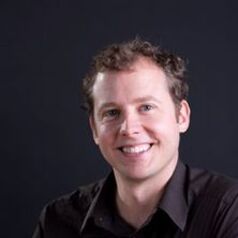
Piers Dawes
Professor, School of Health and Rehabilitation Sciences, The University of Queensland
My research concerns i) understanding causes and impacts of hearing impairment, particularly in the context of multimorbidity in older age, ii) prevention and treatment of hearing impairment, and iii) hearing service development and evaluation. My research involves epidemiological modelling with population data sets, clinical trials and hearing health policy. I have authored over 130 publications in peer reviewed journals and books, and I frequently present invited and keynote addresses at international conferences. I have received the British Society of Audiology's TS Littler prize for services to audiology and a prestigious US-UK Fulbright award.
Less ![]()
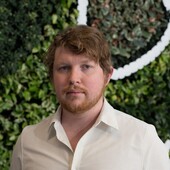
Piers Eaton
PhD Candidate in Political Science, L’Université d’Ottawa/University of Ottawa
Less ![]()
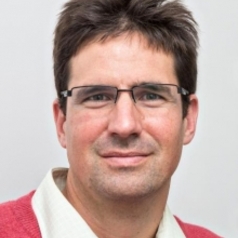
Piers Howe
Associate Professor in Psychology, The University of Melbourne
A/Prof Piers Howe
Director of the Vision, Cognition and Behaviour Lab
Member of the Complex Human Data Hub
Website: https://findanexpert.unimelb.edu.au/profile/340666-piers-howe
Email: [email protected]
Research: Behavioural experiments to better understand how to use technology to reduce the spread of misinformation, prototyping potential solutions using a Wizard of Oz technique. He is investigating what information humans need to receive in order not to re-tweet/post or spread false information. A/Prof Howe is also looking to develop strategies that “nudge” people to look at more reliable sources of information.
Less ![]()
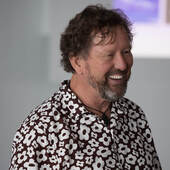
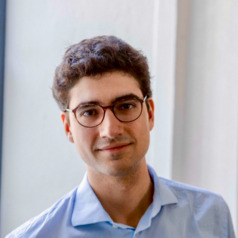
Pietro Galeone
Research fellow, Bocconi University
Pietro is a postdoctoral researcher at IEP@BU and lecturer at Bocconi University. His research focuses on labour economics and EU integration. Originally from Bari, Italy, he obtained his BA in Social Studies from Harvard University, focusing on the relevance of economics for euroscepticism, with a secondary degree in Astrophysics. He then completed his PhD in Economics at Bocconi University, focusing on labour migration and youth policies. In 2021-2022, he served as economic advisor to the Italian Minister for Labour, representing Italy in the Council of the EU’s employment committee (EMCO) and in the G20 Employment working group, as well as at the European Commission as Youth Guarantee coordinator for Italy.
Less ![]()

Pii-Tuulia Nikula
Principal Academic, Eastern Institute of Technology
Dr Pii-Tuulia Nikula is a Principal Academic at EIT in Napier, New Zealand. Her research spans across the fields of environmental sustainability, public policy, management, higher education and international education. Most of her current research focusses on sustainability issues as they relate to organisational climate mitigation and the use of education agents in international student recruitment. Pii-Tuulia's research has been published in international journals such as Studies in Higher Education, Corporate Social Responsibility and Environmental Management and Journal of Studies in International Education. Pii-Tuulia is a co-editor of two books: Sustainable Education Abroad: Striving for Change and Student Recruitment Agents in International Higher Education: A Multi-Stakeholder Perspective on Challenges and Best Practices. Pii-Tuulia is a co-founder of CANIE (Climate Action Network for International Educators).
Less ![]()

Pilar Camargo-Plazas
Associate Professor, Queen's University, Ontario
Pilar Camargo-Plazas, RN, PhD, is an Associate Professor at the School of Nursing, Queen’s University. Under the umbrella of interpretive inquiry and emancipatory approaches, Dr. Camargo-Plazas’s program of research strives to describe and understand how societies organize and distribute resources and address attention toward economic, political, environmental and social factors and their effects on health outcomes, promotion and disease prevention for equity-deserving groups (e.g., older persons, women, families living on a low income, immigrants, refugees, etc.). By focusing on health equity, her research program aims not only to identify research needs but also to develop strategies for sustainable change and action that promote equity in nursing practices for these groups.
Less ![]()
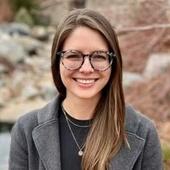

Pilar Montero Vilar
Profesora Titular, investigadora principal del Observatorio de Emergencias en Patrimonio Cultural www.oepac.es, Universidad Complutense de Madrid
Pilar Montero Vilar es profesora titular en el departamento de Pintura y Conservación- Restautación de la facultad de Bellas Artes de la Universidad Complutense donde se doctoró en el año 2000. Obtuvo la licenciatura con dos especialidades Pintura y Restauración (1991). Además estudió un Máster sobre Estética y Teoría de las Artes en la Universidad Autónoma de Madrid (1993) y actualmente está cursando un Máster en Gestión de Desastres (Universidad Politécnica y Universidad Complutense de Madrid).
Actualmente es la directora del GREPAC, grupo de investigación de la Universidad Complutense sobre gestión de riesgos y emergencias en patrimonio cultural https://www.ucm.es/grepac/ y es la investigadora principal del Observatorio de Emergencias en Patrimonio Cultural www.oepac.es
Ha sido profesora visitante en varias universidades de Europa y América. Es directora de Sistemas de Gestión de Calidad (AENOR, 2014) y desde ese año forma parte del Subcomité Miembro del Comité de Normalización 41 de la Agencia Nacional de Normalización AENOR Subcomité 8 (Conservación, restauración y rehabilitación de edificios). Es evaluadora de la Research Executive Agency de la Comisión Europea desde febrero de 2019 y de la Agencia Estatal de Investigación desde 2017.
Desde 2014 ha trabajado en el Plan de Protección de Colecciones ante Emergencias del Museo Nacional Centro de Arte Reina Sofía (Plan PROCOERS), entidad con la que ha suscrito 4 contratos artc.83 y ha sido investigadora principal del proyecto titulado “Diseño e implementación de un modelo para la Gestión de Riesgos ante Emergencias de las Colecciones: Museo Nacional Centro de Arte Reina Sofía” (HAR2016-76999-R (2016-2019) financiado por la Agencia Estatal de Investigación.
Ha publicado varios artículos en relación con este proyecto y ha impartido numerosos cursos y participado en congresos y reuniones internacionales, talleres y proyectos de investigación como experta con la gestión de riesgos y emergencias en patrimonio cultural. Entre los últimos destaca su participación en el proyecto europeo Ophera Project https://ophera.beniculturali.it/
En 2018 fue nombrada, mediante resolución del Director General de Bellas Artes, miembro asesor del Ministerio de Cultura y Deportes para el Grupo de Trabajo para la implantación de los Planes de Salvaguarda de Bienes en Instituciones Culturales y desde 2021 forma parte de la comisión de seguimiento del Plan Nacional en Gestión de Riesgos y Emergencias de Patrimonio Cultural del Ministerio de Cultural
Asimismo es miembro del Consejo Internacional de Museos (ICOM), del Consejo Internacional de Monumentos y Sitios (ICOMOS) y del Grupo Español de Conservación GeIIC.
Less ![]()

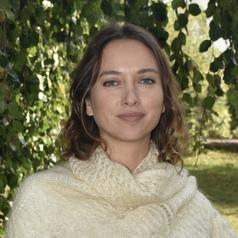
Pinar Dinc
Associate Professor of Political Science, Department of Political Science & Researcher, Centre for Advanced Middle Eastern Studies, Lund University
Pınar Dinç is an associate professor of political science at the Department of Political Science, Lund University and a researcher at the Centre for Advanced Middle Eastern Studies, Lund University. Since completing her PhD at the Department of Government at the London School of Economics in 2017, her research has focused on the links between political power, conflict, climate change, environmental degradation and migration among marginalised and oppressed communities. She was the principal investigator for the Turkey Beyond Borders: Critical Voices, New Perspectives project between 2020 and 2024. Her current research is mainly focused on Turkey, Syria, the Kurdistan Region of Iraq and Palestine.
Less ![]()
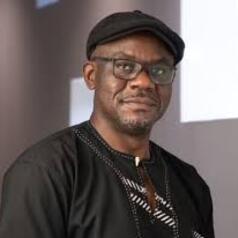
Pineteh Angu
Associate professor, University of Pretoria
Prof Pineteh E. Angu is the director and associate professor in the Unit for Academic Literacy, University of Pretoria. He obtained his doctorate degree in 2007, for an interdisciplinary research project titled Narratives of homelessness and displacement: life testimonies of Cameroonian asylum seekers in Johannesburg.
His research interests include migrant narratives, multilingualism, academic literacies, African transnational migration, xenophobia and social exclusion as well as language and communication. He has published several academic articles in internationally accredited journals and presented papers at local and international conferences.
Before joining the University of Pretoria, Prof Angu was a permanent academic staff member at Cape Peninsula University of Technology (CPUT), Cape Town, where he coordinated language and communication support across the Faculty of Informatics and Design. Prior to his appointment as language coordinator, he lectured Advanced Communication Skills, Language and Communication, English for Public Relations and Research Methodology.
He has successfully supervised and co-supervised master's and doctoral students. He has also externally examined more than ten MA theses and one PhD thesis for the universities of Fort Hare and the Western Cape.
At CPUT, Prof Angu served on several faculty and institutional committees including Senate Language Committee, Faculty Research Committee, Faculty Ethics Committee, and Faculty Board Executive. He also served on conference organising committees notably African Languages Association of South Africa (ALASA) and Education Association of South Africa (EASA). As the faculty language coordinator and member of the Senate Language Committee, he played a key role in implementing the university’s language policy.
Prof Angu is a member of the editorial board of Journal for the Scholarship of Teaching and Learning, Electronic Journal of Knowledge Management and African Human Mobility Review. He is also a peer reviewer for Studies in Higher Education, Computer Assisted Language Learning and Canadian Journal of African Studies.
Less ![]()

Ping Lam Ip
PhD student, Sociology, University of Alberta
Ping Lam Ip is a PhD student in sociology at the University Alberta. He received his MPhil and BSSc in sociology from Hong Kong Baptist University. His research interests include youth, delinquency, social control, and social theories. His co-authored work has been published in Critical Criminology, The British Journal of Social Work, and Asian Education and Development Studies.
Less ![]()


Pippa Morgan
Lecturer, Political Science, Duke Kunshan University
I am a Lecturer in Political Science at Duke Kunshan University. My research focuses on the political economy of China’s foreign economic relations, Chinese foreign aid, foreign direct investment, and China-Africa relations. More broadly, I am interested in combining quantitative and qualitative methods to understand how history influences contemporary political economy and international relations, and in how political and sociological factors impact prospects for economic development. My teaching interests at Duke Kunshan include global governance, political economy of institutions, and China and the Global South.
Less ![]()
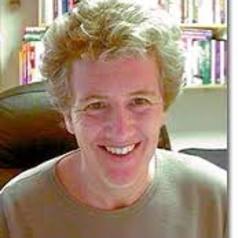
Pippa Norris
Pippa Norris is the McGuire Lecturer in Comparative Politics at the John F. Kennedy School of Government, Harvard University and ARC Laureate Fellow and Professor of Government and International Relations at the University of Sydney.
A political scientist and public speaker, her research compares election and public opinion, political communications, and gender politics. She also served as Director of the Democratic Governance Group in United Nations Development Programme, NY and as an expert consultant to many international organizations such as the World Bank, Council of Europe and OSCE.
In 2011 she was awarded the Johan Skytte prize with Professor Ronald Inglehart for contributing innovative ideas about the relevance and roots of political culture in a global context. This is among the most prestigious prizes relating to the field of political science. She was also awarded the Kathleen Kitzpatrick Australian Laureate Fellowship by the ARC, a 'special recognition' award by the UK Political Studies Association, and a Doctor honoris causa for work 'at the forefront of global political science' by the University of Edinburgh. In 2014 she was awarded IPSA's Karl Deutsch prize.
Her current research focuses upon the Electoral Integrity Project, a major new multi-million 5-year research study. The project research team is based at the Department of Government and International Relations at the University of Sydney. It has been generously supported by many agencies, including the Australian Research Council. Recent and forthcoming publications include Why Elections Fail (2015), Contentious Elections (2015), Why Electoral Integrity Matters (Cambridge University Press 2014), Advancing Electoral Integrity (co-edited, Oxford University Press, 2014), Comparing Democracies 4 (Sage, co-edited April 2014), and also an edited symposium on electoral integrity in Electoral Studies (Oct 2013).
Less ![]()
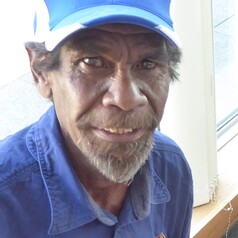
Pius Gregory
Yawuru Traditional Owner; Kimberley Biocultural Conservation Specialist at WWF-Australia's Broome office, Indigenous Knowledge
Pius is a Yawuru Traditional Owner, with many years of experience as country manager, looking after desert and sea country. He currently works for WWF as the Biocultural Conservation Specialist based in Broome.
Less ![]()
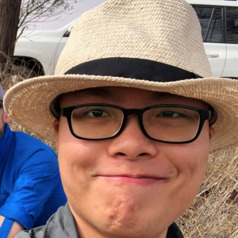
Pok Man Leung
Research Fellow in Microbiology, Monash University
I am a postdoctoral research fellow in Prof. Chris Greening lab in Department of Microbiology, Monash University. My primary interest is to understand how microorganisms in the environment survive under different conditions, and in turns modulate our environments and climate.
Less ![]()
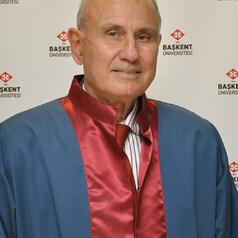
Polat Gulkan
Professor of Earthquake Structural Engineering, Başkent University
Polat Gulkan is Professor of Earthquake Structural Engineering, Başkent University
Ankara, Türkiye and a fellow of the U.S. National Academy of Engineering.
Less ![]()

Polly Rippon
University Teacher in Journalism, University of Sheffield
I've been a journalist in the regional press for 20 years and I teach media law, regulation and court reporting at the University of Sheffield. My areas of interest are media law, court reporting, local newspaper industry. I have a degree in English Language and Linguistics and I am NCTJ-qualified.
Less ![]()
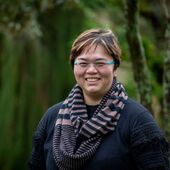


Poornika Ananth
Assistant Professor in Strategy and Organisations, School of Management, University of Bath
Less ![]()
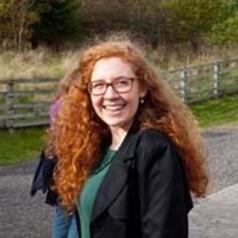
Poppy Cullen
Lecturer in International History, Loughborough University
Poppy is a historian of decolonisation and post-colonial relationships between Britain and Africa. She is interested in the transition from colonial to independent states in the 1960s and how organisations and individuals in a variety of fields – military, political, economic, humanitarian – adapted to this transition.
Her book 'Kenya and Britain after Independence Beyond Neo-Colonialism' focused on the political relationship between Britain and Kenya in the decades after independence, the 1960s to 1980s. She examined how political elites in both countries re-thought their relationships after Kenyan independence, and how the different forms of diplomacy practiced by the two states shaped the foreign policies they followed. She argued that British diplomats encouraged personalised rather than bureaucratic policy-making in Kenya. At the same time, they naturalised this kind of personalised politics, often termed neo-patrimonialism, as something inherently ‘African’. Poppy has published on various aspects of Anglo-Kenyan relations in a number of journals.
Her current research is focused on two areas. Firstly, military decolonisation and Africanisation in East Africa. Here, Poppy explores the precarious transformation of colonial armies intended to secure imperial rule to independent African militaries. Secondly, the history of humanitarianism and NGOs in Africa during the period of decolonisation. This includes work on ‘The Big Survey’ of NGOs carried out in the 1960s, and research into the Mau Mau Emergency.
Less ![]()

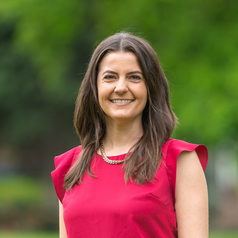
Portia Odell
System Lead - Cities, Climateworks Centre
Portia leads this team to reduce emissions within cities across the built environment, infrastructure and transport sectors across Australia and the Asia Pacific region.
Portia is a researcher and sustainability leader with a decade’s experience spanning academia, social enterprise, startups, and non-profit organisations. Portia was previously Director of the Cities Power Partnership, a program of the Climate Council and Australia’s largest network of over 185 local governments tackling climate change. In this role she spearheaded strategic research and advocacy initiatives to drive impactful change on climate policy for cities nationwide. Portia has also worked across a range of for-profit and not-for-profit organisations, helping small and medium sized enterprises to reduce their emissions. She has also worked in several start-up ventures, including co-founding a social enterprise.
Portia holds a PhD with the Curtin University Sustainability Policy (CUSP) Institute on school building decarbonisation and social impact, and a Bachelors’ degree in Environmental Science and Policy, with St. Edwards University in Austin, Texas.
Less ![]()
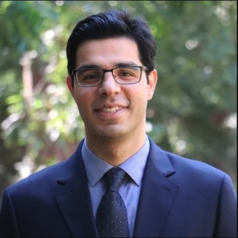
Pourya Valizadeh
Research Assistant Professor of Agricultural Economics, Texas A&M University
Pourya Valizadeh, Ph.D. is a research assistant professor in the Department of Agricultural Economics. His research interests lie in the economics of food policy, demand and price analysis, and applied econometrics tools for program evaluation and distributional analysis.
Valizadeh’s current research is primarily focused on evaluating the major US food and nutrition assistance programs. He is also conducting research to predict the relative effectiveness of alternative price-based food policies in improving U.S. households’ dietary quality and dietary choices. Prior to joining the faculty at Texas A&M University, he was a postdoctoral research associate at the University of North Carolina at Chapel Hill.
Less ![]()

Pouya Afshar
Associate Professor of Art & Design, UMass Lowell
Pouya Afshar is an alumnus from the California Institute of Arts Character Animation department and is a graduate of University of California Los Angeles Graduate Department of Film and Television focusing in Animation and Digital Media. He has exhibited his work as a visual artist throughout United States Europe, and Middle East, including Harold M. Williams Auditorium at the Getty Center, Bovard Auditorium at University of Southern California, Royce Hall at University of California Los Angeles, Los Angeles County Museum of Art, Santa Monica Art Studios, 18th street Art Center, Craft Contemporary Museum, and numerous galleries and art fairs around the world. Pouya has presented his research at Stanford University, Harvard University, University of Southern California, The School of Museum of Fine Arts Boston, University of California Los Angeles, and Residency Unlimited NY. He is the creator, character designer and producer of the animated series ‘Rostam in Wonderland’ and the co-creator of ‘1PA2PA’ comics and the creator of 'Tehran' graphic novel. He is currently an Associate Professor of Art and Design at University of Massachusetts, Lowell.
Less ![]()
- Market Data























